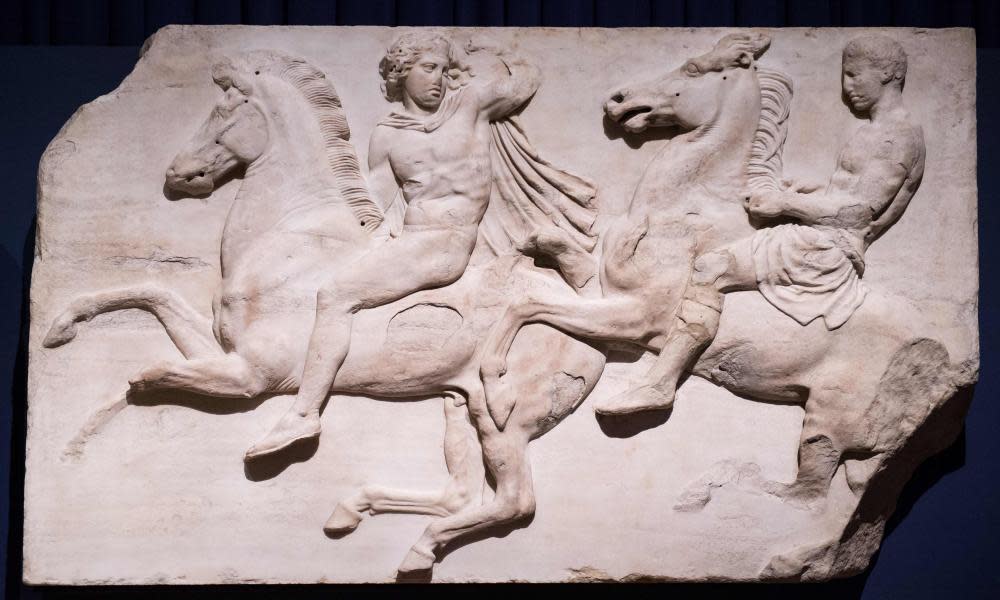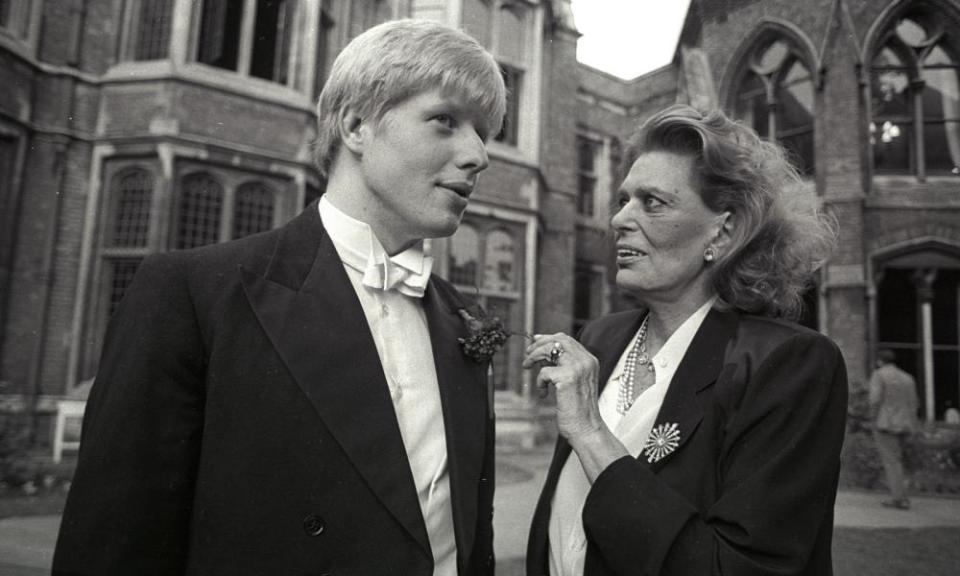Letters show how Boris Johnson backed return of Parthenon marbles

The extent to which Boris Johnson encouraged Greece to launch its campaign to retrieve the Parthenon marbles has been revealed in letters written by the future prime minister to the woman who would head the initiative with unprecedented gusto.
In unambiguous prose detailing his affiliation to “the cause”, Johnson, then president of the Oxford Union, implored the Greek culture minister, Melina Mercouri, to put the case for the return of the antiquities before the society, saying her participation in the debate “would be an important step in your campaign”.
“If the motion was successful, and I am sure that it would be, it would be a clear message to the British government that their policy is unacceptable to cultured people,” he wrote on 10 March 1986, inviting the actor turned politician to address the union in June that year.
“I think the majority of students agree with me when I say there is absolutely no reason why the Elgin marbles, superlatively the most important and beautiful treasures left to us by the ancient world, should not be returned immediately from the British Museum to their rightful home in Athens.”
Johnson has always acknowledged the significance to Greece of carvings regarded as the high point of classical art. But in the ensuing years, his tune would change dramatically. Both as London’s mayor and prime minister he has echoed the long-standing position of successive British governments that the antiquities “were legally acquired by Lord Elgin under the appropriate laws of the time”.
Unearthed in an Oxford library by Yannis Andritsopoulos, the London correspondent of the Greek daily Ta Nea, the letters not only underscore Johnson’s own U-turn but his role in firing up a campaign that was in its nascent stages.
The fifth century BC sculptures were acquired by the British Museum in 1816, more than a decade after being removed from the Acropolis in highly controversial circumstances by Lord Elgin, England’s ambassador to the Sublime Porte, the central government of the Ottoman Empire.
Mercouri first announced that Athens would be formally requesting their repatriation at a world meeting of culture ministers assembled by the UN heritage body Unesco in 1982. At the time, she was looking for like-minded supporters in Britain.
Last November, Johnson insisted it was a matter for trustees at the British Museum to resolve when his Greek counterpart, Kyriakos Mitsotakis, raised the issue for the first time in Downing Street.

The Museum possesses about half of the decorative artworks that once adorned the Parthenon temple. Mitsotakis, who has made the return of the treasures a top foreign policy priority, has spoken frequently of the artistic, cultural and aesthetic need to reunite “emblematic monuments, inextricably linked with the identity of a nation”, so that they can be viewed in their entirety as a unified whole.
The Tory leader’s erstwhile zeal for the marbles’ restitution might have gone unnoticed had it not been for the discovery of an article he wrote 36 years ago in Debate, once the official magazine of the Oxford Union Society. The essay, also unearthed in the archives of an Oxford library by Ta Nea, similarly urged the British government to return the artworks to Greece, “[then] a tumbledown outpost of the Ottoman Empire”. Elgin, Johnson argued, had exploited “the near-anarchy” of the nation’s vassal status to have the treasures “sawed and hacked” from the temple.
Responding to the discovery, Downing Street officials insisted the polemic had been written by the then 21-year-old classics student in a fit of “momentary” exuberance.
But the letters offer further proof that Johnson’s initial stance was far from transitory. In a second missive to Mercouri, also delivered on Oxford Union notepaper, he denounces the British government’s “sophistry and intransigence”.
In a bid to entice the famously flamboyant Greek to give the keynote speech, Johnson also refers to her filmmaker husband, Jules Dassin, who “very kindly had the time to see me”, and says she will be among a list of other notables to speak to the union. “Recent speakers at the Oxford Union include Richard Nixon, Geraldine Ferraro, Helmut Schmidt, David Lange and Caspar Weinberger, so we are used to international figures,” he wrote.
Mercouri ultimately accepted Johnson’s invitation to speak at the Oxford Union, reportedly eliciting roars of approval as she exhorted the audience to understand the importance of the sculptures to Greeks. “They are our pride. They are our sacrifices. They are our noblest symbol of excellence … they are our aspirations and our name. They are the essence of Greekness,” she declared. The chamber voted overwhelmingly in favour of returning the relics to Athens.
“Mysteriously, though, the debate’s proceedings appear to have vanished,” said Andritsopoulos. “I have looked high and low for them in the archives of various Oxford libraries, but to avail. Who could possibly benefit from them disappearing?”
In a third letter written to the Greek embassy’s press attaché, Johnson spoke of the “large and splendid” party planned at the Oxford Union on the eve of the debate. “To make the thing go with a swing, we are in search of cheap ouzo and retsina,” he wrote. “I was informed it might be feasible to obtain it through the embassy. Could you possibly advise?”

 Yahoo Movies
Yahoo Movies 
